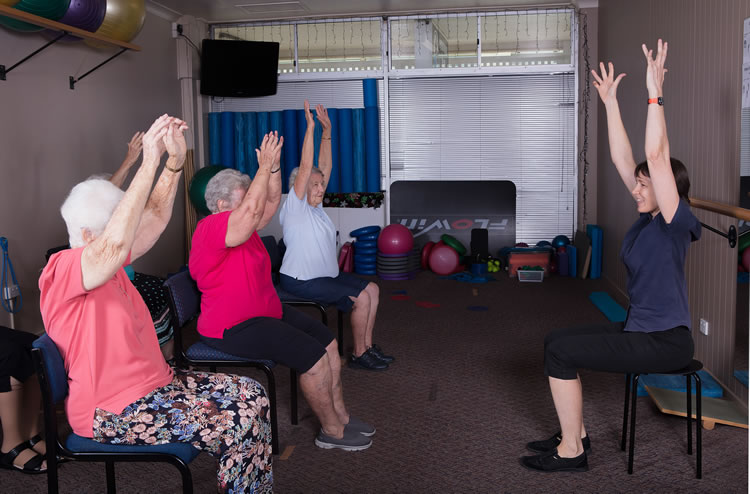We’re welcoming back the April No Falls Campaign!
April No Falls is an international campaign, which aims to educate and raise awareness of falls prevention and help those at risk of falling to stay on their feet.
Injury from falls is an ever-increasing risk for people aged 65 years and over, with statistics showing that more than one in three people in that age bracket will have a fall each year. Of those, more than 30 per cent will require medical treatment.
With an ageing population, it is no surprise that the number of hip fractures resulting from a fall in Australia is expected to double by 2026 and increase fourfold by 2051.
Though there are often many factors involved with decreased balance as we age, a lot of this decline is simply due to our inactivity.
This can usually be improved with training.
This training will involve improving overall upper and lower body strength along with challenging the balance system daily with activities.
Here at SPHC, our goal is always “prevention is better than a cure”. Which is why we offer several treatment options for people of all ages and abilities.
How Does Balance Work?
1. Sensory Information from your Eyes:
Visual cues come from our eyes and tell us all sorts of information about our environment, including potential dangers and obstacles.
2. Sensory Information from your Vestibular System:
The inner ear contains fluid-filled semicircular canals, which gives us important information on the position of our head and its movement in space in relation to gravity.
3. Sensory information from your Joints (Proprioception):
Sensory feedback from your ankles, knees and hips, helps keep us upright and stable as we run, walk or dance.
4. Muscular Strength and Reaction Time:
Once the sensory information is processed by the brain, the muscular system must be strong & fast enough to react and correct any disturbance in balance.
Start Stepping Safe
- Our step safe class is specifically designed to challenge and develop all the key areas required to build good balance reactions.
- Our classes are supervised by a Physiotherapist and are tailored to accommodate and challenge people of all abilities.
Think You’re Too Young?
- Balance issues often start a lot younger than people realise.
- When was the first time you sprained your ankle?
Did you rehab it? - For many people, a sprained ankle can be the beginning of declining balance.
- Balance is a skill. And like any skill, it’s a use it or lose it principal.
If you’d like to put your balance to the test, but think you’re too advanced for Step Safe, there are plenty of options you can try. Some fun and challenges balance exercise options include Tai Chi, adult Ballet classes, Ballroom dancing, & Pilates to name a few.
If you’d like to try one of our Lifestyle Pilates classes, call us on 3869 1099 and get your first class FREE*
*Participants must be new to Pilates at SPHC
Hydrotherapy for Balance Improvement
If you’d like a more supportive environment to start your balance journey, Hydrotherapy is the place for you.
- Exercising in water provides a natural resistance that you are in complete control over, all whilst in a warm and supportive environment.
- Hydrotherapy is a great option for those whose osteoarthritis prevents them from participating in regular exercise, as it reduces joint loading.

